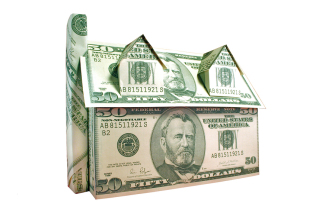Home Equity and You
 While home is where the heart is, it’s also where your money is. Even if you’ve diversified your portfolio, your home is still a major asset and should be treated like any other investment. Think back to how much cash you poured into your home when you bought it. If you made a down payment of 20% on a $200,000 home, you’ve invested $40,000 plus extra for closing costs. Everyone’s situation is different and your initial investment may be more, but for most people a home purchase is their largest expenditure.
While home is where the heart is, it’s also where your money is. Even if you’ve diversified your portfolio, your home is still a major asset and should be treated like any other investment. Think back to how much cash you poured into your home when you bought it. If you made a down payment of 20% on a $200,000 home, you’ve invested $40,000 plus extra for closing costs. Everyone’s situation is different and your initial investment may be more, but for most people a home purchase is their largest expenditure.
How Home Equity Works
No matter how much you put down, your home equity is the current market value of your home minus the amount you owe on your home loan. While your home equity can rise or fall along with local market conditions, paying down your mortgage will also increase your home equity. Your home equity is valuable to you in three key ways:
- You can eliminate private mortgage insurance once your home equity reaches 20% or more.
- You can borrow against your home equity if you have solid credit.
- The higher your home equity, the greater your profit when you sell your home.
Build your Home Equity Faster
Your goal for every investment is to get a great return on your money.For homeowners, a great return means your home has risen in value or you’ve been able to pay down your mortgage entirely and own your property without any debt. There are several ways you can increase your home equity. Here are three common techniques:
- Refinance into a shorter-term loan so that you can quickly pay off the balance. The caveat here is to make sure the cost of refinancing makes sense financially.
- Make extra payments toward your loan’s principal on a regular basis to reduce your balance.
- Make cost-effective home improvements that increase your home value. A real estate agent can help you determine how much to spend and what projects will bring a solid return on your investment.
When to—and When Not to—Borrow Against your Home Equity
While increasing your home equity is a noble goal, there are times when borrowing on your equity can also be a smart financial move. You’ll need solid credit, enough income to make the payments, and sufficient home equity to take out a home equity loan. You take out either a home equity loan or a home equity line of credit. It comes down to how you plan to use the money. It’s not a smart idea to borrow against your house to go on a vacation or to buy an expensive car, but these are some good reasons to use your home equity:
- To invest in a business or property that will provide you with a consistent return on your money, enough to offset the cost of borrowing
- To pay off high-interest debt such as credit cards, as long as you are disciplined enough to avoid incurring new debt
- To make a home improvement that will add value to your home or increase the functionality of your home so that you can avoid the cost and hassle of moving
- To make a down payment on a second home for vacations, retirement, or investment purposes
While your home should be a place you love to live in, responsibly handling your investment in the property can bring you financial rewards as well as emotional satisfaction.
-From Realtor.com
